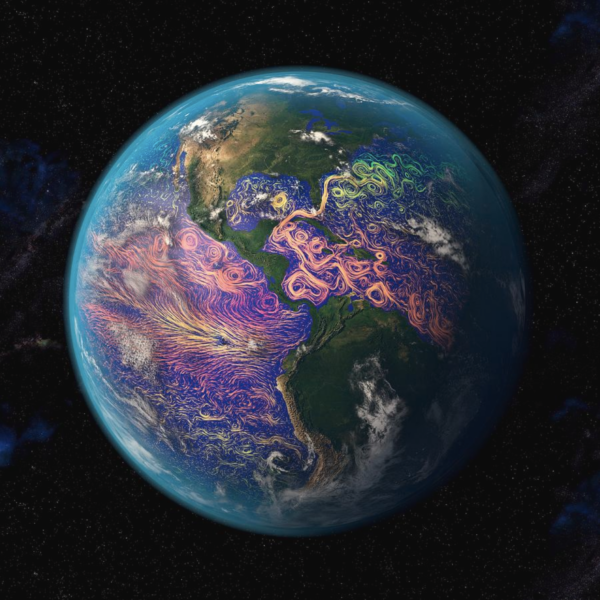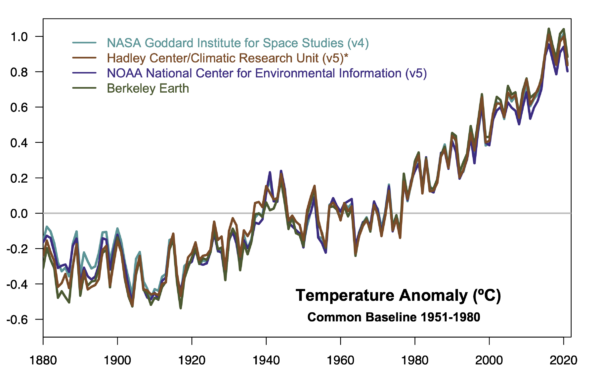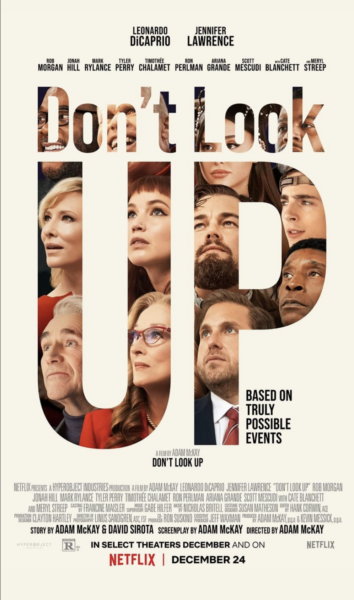
What’s good (and what’s not quite ready) about plans for ‘k-scale’ climate modeling?
[Read more…] about Mmm-k scale climate modelsClimate science from climate scientists...
by Gavin

What’s good (and what’s not quite ready) about plans for ‘k-scale’ climate modeling?
[Read more…] about Mmm-k scale climate modelsby Gavin
A couple of weeks ago the EU announced that they were funding a project called DestinE (Destination Earth) to build ‘digital twins’ of the Earth System to support policy making and rapid reaction to weather and climate events.
While the term ‘digitial twin’ has a long history in the engineering world, it’s only recently been applied to Earth System Modeling, and is intended (I surmise, as does Bryan Lawrence) to denote something more than the modeling of either weather or climate that we’ve been doing for years. But what exactly? And is it an achievable goal or just a rebranding effort of things that are happening anyway?
[Read more…] about Digital Twingeby Gavin
Defining (and enforcing) a clear line between information and mis-information is impossible, but that doesn’t mean misinformation doesn’t exist or that there is nothing to be done to combat it.
I found myself caught in an ‘interesting’ set of exchanges on twitter a few weeks ago (I won’t link to it to spare you the tedium, but you could probably find it if you look hard enough). The nominal issue was whether deplatforming known bull******s was useful at stemming the spread of misinformation (specifically with respect to discussions around COVID). There is evidence that this does in fact work to some extent, but the twitter thread quickly turned to the question of who decides what is misinformation in the first place, and then descended into a free-for-all where just the very mention that misinformation existed or that the scientific method provided a ratchet to detect it, was met with knee-jerk references to the Nazi’s and the inquisition. So far, so usual, right?
While the specific thread was not particularly edifying, and I’ll grant that my tweets were not perfectly pitched for the specific audience, this is a very modern example of the classic Demarcation Problem (Stanford Encyclopedia of Philosophy) in the philosophy of science.
[Read more…] about The modern demarcation problemby Gavin
So last week was the annual release of the temperature records from NASA, NOAA and Berkeley Earth. The Copernicus ERA5 data was released a few days ago, and the HadCRUT data will follow soon. Unlike in years past, there is no longer any serious discrepancy between the records – which use multiple approaches for the ocean temperatures, the homogenization of the weather stations records, and interpolation.

Depending on the product, 2021 was either the 5th, 6th or 7th warmest year, but in all cases, it is part of the string of warm years (since 2015) that have all been more than 1ºC warmer than the late 19th C.
[Read more…] about Another dot on the graphby Gavin

The highlight of the movie season for climate science has clearly been the release on Dec 24th 2021 of “Don’t Look Up”. While nominally about a different kind of disaster – the discovery of a comet heading to Earth on a collision course – the skewering of our current science-policy dysfunction transcends the specifics and makes a powerful metaphor for climate change, and even the ongoing COVID-19 pandemic.
[Read more…] about “Don’t Look Up”by rasmus
I followed with great interest the launch of the sixth assessment report Working Group 1 (The Physical Science Basis) from the Intergovernmental Panel on Climate Change (IPCC) on August 9th.
The main report is quite impressive (see earlier posts here, here, here, and here) but the press conference didn’t come across as being focused and well-prepared. In my opinion the press conference on 9 August 2021 didn’t do justice to the vast effort that went into it.
[Read more…] about Deciphering the ‘SPM AR6 WG1’ codeby group

Climate scientists are inordinately excited by the release of a new IPCC report (truth be told, that’s a bit odd – It’s a bit like bringing your end-of-(seven)-year project home and waiting anxiously to see how well it will be received). So, in an uncharacteristically enthusiastic burst of effort, we have a whole suite of posts on the report for you to read.
If/when we add some more commentary as we digest the details and we see how the report is being discussed, we’ll link it from here. Feel free to discuss general issues with the report in the comments here, and feel free to suggest further deep dives we might pursue.
by rasmus
Climate adaptation steams forward with an accelerated speed that can be seen through the Climate Adaptation Summit in January (see previous post), the ECCA 2021 in May/June, and the upcoming COP26. Recent extreme events may spur this development even further (see previous post about attribution of recent heatwaves).
To aid climate adaptation, Europe’s Climate-Adapt programme provides a wealth of resources, such as guidance, case studies and videos. This is a good start, but a clear and transparent account on how to use the actual climate information for adaptation seems to be missing. How can projections of future heatwaves or extreme rainfall help practitioners, and how to interpret this kind of information?
[Read more…] about Climate adaptation should be based on robust regional climate informationby rasmus
Future global warming will be accompanied by more intense rainfall and flash floods due to increased evaporation, as a consequence of higher surface temperatures which also lead to a higher turn-around rate for the global hydrological cycle. In other words, we will see changing rainfall patterns. And if the global area of rainfall also shrinks, then a higher regional concentration of the rainfall is bound to lead to more intense downpours (the global rainfall indicator is discussed here).
[Read more…] about A potential rule of thumb for hourly rainfall?by rasmus
It’s encouraging to note the growing interest for regional climate information for society and climate adaptation, such as recent advances in the World Climate Research Programme (WCRP), the climate adaptation summit CAS2021, and the new Digital Europe. These efforts are likely to boost the Global Framework for Climate Services (GFCS) needed as a guide to decision-makers on matters influenced by weather and climate.
[Read more…] about Regional information for society (RifS) and unresolved issues1,363 posts
11 pages
242,669 comments